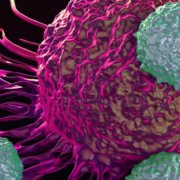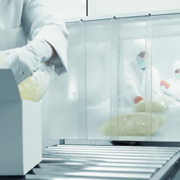Gene Editing?CRISPR-Cas9 gene editing offers substantial improvements over previous gene editing technologies in terms of ease of use, speed, efficacy, and cost. Not surprisingly, CRISPR-Cas9 editing has taken biomedical science by storm. While the technology is relatively simple in handling at the level of basic research, the use of CRISPR genome editing in therapeutical applications poses a bunch of
analytical challenges.
ADVERTISEMENT
The medical cold chain is the network of refrigerators, freezers, and transport solutions tasked to always keep samples and specimens at their intended temperatures. When it comes to cell and gene research and therapy, temperature requirements can be demanding, requiring the deployment of specialised refrigeration products. With its refrigeration solutions, B Medical Systems can help in always keeping your specimens safe.
When the time comes for a biopharma company to outsource its production, or to get support for the development of a new project, the pool of available CDMOs is quite deep. Everyone knows the big players, but maybe they are not suitable for everyone. They have proven expertise but as it happens with big organisations, they are usually not very flexible with increased indirect costs.
What started in 2013 as an attempt – to offer experts in analytical and microbiological quality control, contract laboratories, representatives from authorities and service providers an
industry event and a platform for exchanging knowledge and experience – has now become a firmly established date in the events calendar.
Cell and Gene Therapy Processing?Personalised tumour treatments are expensive. This particularly applies to individual cancer therapies based on gene-modified T cells. Currently, they are produced manually or, at best, in a partially-automated process. In a collaboration project ProCell for Patient, two hospitals are currently working with Optima Pharma to develop an automated unit for the decentralised production of a CAR-T cell product in treatment centres.
Single cell multiomics has the capacity to address key challenges to developing cell and gene therapies, specifically CAR T-cell therapies. Hear how leading cancer immunotherapy researchers are using these approaches for characterizing the leukapheresis and infusion product, studying the evolution of the cell product in vivo, identifying and defining mechanisms of resistance, and discovering next-generation cell therapies.
The largest biotech event organised by a national bioindustry association (AseBio) in Europe and one of the biggest in the world will take place from 27 September to 1 October. To be held in Pamplona-Iruña, the capital of the region of Navarra, and a scientific cluster for biotechnology, BioSpain will feature
a combination of on-site networking opportunities and site visits, an online trade show, presentations,
and panels that will be accessible simultaneously on-site and online.
By applying the expertise, best practice, and emerging technologies of the logistics industry, biotech not only prevents the missteps that can destroy its products, it can also capitalise on opportunities to get to new markets faster, safer and more cost effectively.
The cannabis industry has established its first footholds in Europe over the past six years – but what comes next? European Biotechnology invited US-German American consultant, entrepreneur and author Marguerite Arnold to give a long-term future outlook.
So far, no gene and cell therapies have been approved to treat solid tumours. European Biotechnology spoke with Karen Miller, SVP Pipeline Research at Adaptimmune plc, about promising candidates, and the art of circumventing supply chain bottlenecks caused by the COVID-19 pandemic.


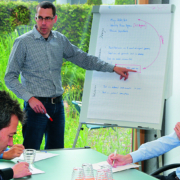
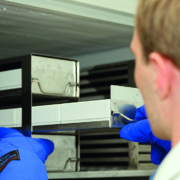

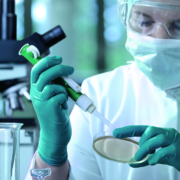
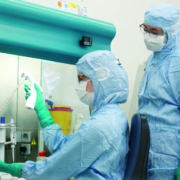 Universitätsklinikum Heidelberg
Universitätsklinikum Heidelberg